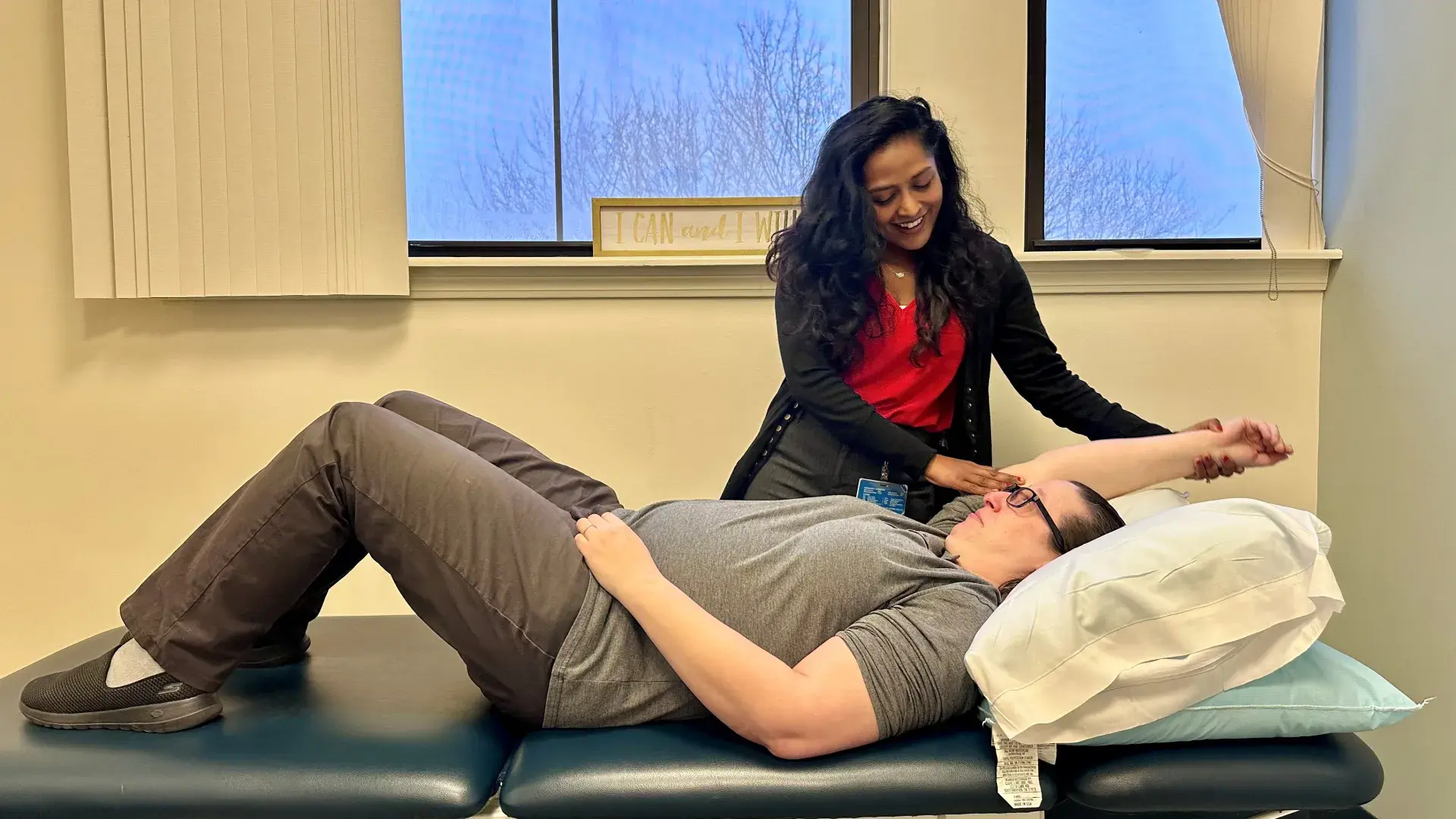
Says communicating and problem solving are two most important takeaways fur future PTs
For physical therapist Uththara Atapattu, helping patients regain movement they lost and restoring function is one satisfying part of her job, and so is being a clinical instructor.
“I love it - I love being a clinical instructor,” she said with a smile. “And I love knowing that what I’m doing is helping prepare the next generation of physical therapists. There’s something very fulfilling about that.”
A nine-year veteran at Spaulding Outpatient Center Lynn, Atapattu evaluates and treats patients with orthopedic and neurological disorders – and helps teach students to do the same.
“Students are learning things like communication and how to extract information from the patients when they may not be direct about what’s going on,” said Atapattu. “Learning often goes beyond patient care as a PT student. Students often improve time management at the end of their affiliation. For example, students improve their ability to juggle between all types of duties such as scheduling, documenting, dealing with tardiness or early arrivals, communicating with peers and other healthcare professionals regarding patient care.”
To Atapattu, the two most important takeaways for clinical residents are communicating and problem solving.
“Communicating with patients of all different backgrounds, whether there's a language barrier or even a speech impediment,” said Atapattu. “That's huge to our profession. If you don't have the communication skills, there's no way you're going to help our patients out. And patient care is never black and white. Students will have to go through different avenues to get to the solution.”
Most, if not all, students under Atapattu’s tutelage are from the MGH Institute, the only degree-granting affiliate of Mass General Brigham.
“MGH Institute students come to the table with a lot of knowledge,” said Atapattu. “They know a lot of the bread and butter, which essentially is what is required starting a clinical affiliation. Having a good foundation of skills acquired in the classroom is necessary to implement into patient care.”
Patient care that only works when classroom knowledge is translated into clinical knowhow and problem-based learning, which is what students receive under Atapattu.
“Out in the real world, when you're a new graduate, you're not going to know everything,” noted Atapattu. “I like to empower my students to bridge any knowledge gaps by doing the research on their own in order to effectively treat patients. Students must be comfortable knowing that they don't know everything. It’s okay. That's why we have all the research. That's why you have all these databases that you can go to and get your resources and then treat your patients.”
Atapattu finds joy being at the nexus of healthcare and higher education, knowing that her efforts and expertise are helping propel someone’s career in helping others.
“Being a physical therapist is very satisfying to me, and something I’m very proud of,” noted Atapattu. “I’m also proud of my impact on my students; to know lessons learned with me are helping them pursue a career at Mass General Brigham or elsewhere is something special.”
Do you have a story the Office of Strategic Communications should know about? If so, let us know.
